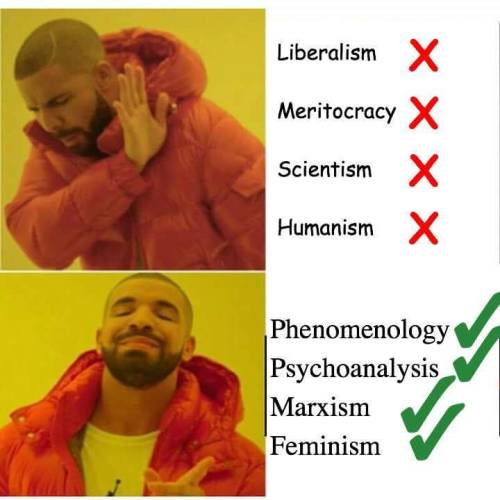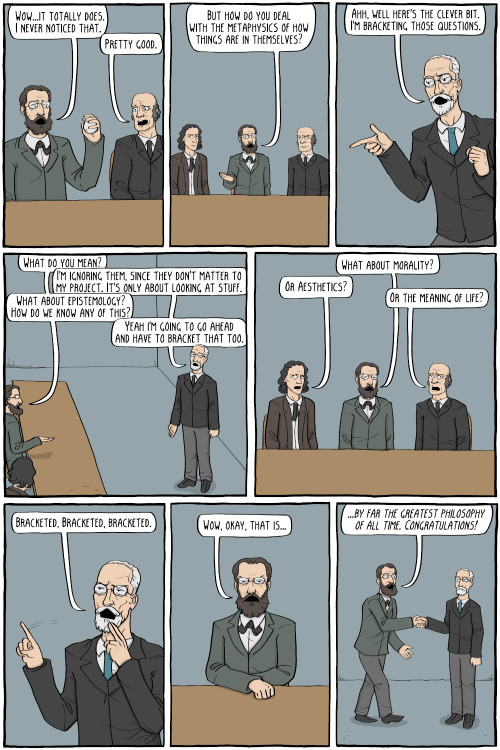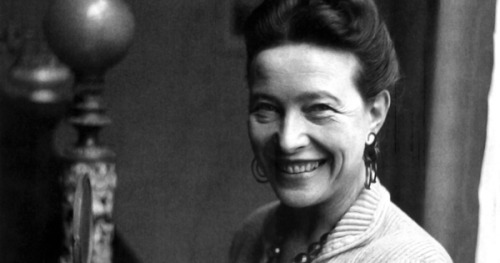#phenomenology
Aldous Huxley’s The Doors of Perception

A review and exploration.The brain, Aldous Huxley asserts, is like a reducing valve, filtering out great masses of unnecessary experiences, creating a unified, simple experience of the world. Although Huxley’s Doors of Perception is based around his experience of the consumption of the psychedelic drug mescaline, the wealth of wisdom within the book stretches far beyond that of speculation…
Is your consciousness created by marketing?
In our everyday life, we are brought into a world of ‘otherness’ through the induction of language other than that of our own. In particular, here, I mean the language of the product; food and drink, clothes, anything which can be marketed. Our own life contains its self within a field of language, I.E. that language which is natural for us to use and think through and with. Each field of…
Parmenides- Russell’s History of Western Philosophy, chapter by chapter- (5)

Life
Parmenides was born, it is thought, around 515 BCE in Elea. It was believed that an old Parmenides actually taught a young Socrates, although this is debated. In this article, we will look at his attempt to explain permanence in nature, and be introduced to an early problem in the philosophy of language.
Philosophy
The first real search for permanence was to be found with the endeavours of…
A fundamental theory of the self
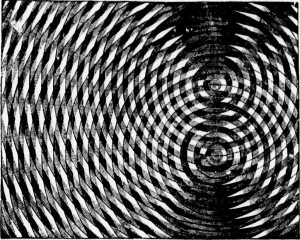
In the western analytical tradition of philosophy, questions of identity have long been inclined towards asking things to the nature of What persists as a person ages? Is the person I will be in ten years the same person as I now am? Is identity one unchanging self, or a succession of selves? These are metaphysical questions which discuss, in abstract, yet pertinent terms, the properties of a…
Are thought and experience philosophically compatible?
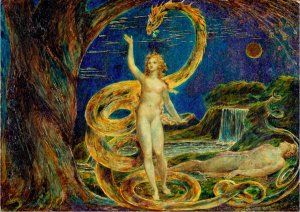
The assertion on trial in this paper is the idea that metaphysics and existentialism are as incompatible as they are often considered to be. First, we shall define both metaphysics and existentialism. Purely for convenience, I borrow the two definitions entirely. Most readers will understand these two terms readily, but they set a useful foundation for the discussion. “Metaphysics is a branch of…
Discovering the Women at the Heart of Philosophy
By Anna Ezekiel
Academic philosophy, especially in the west, has long had a reputation as the near-exclusive domain of white men. These days, however, there is growing interest in philosophy by historical women and in philosophical traditions from other parts of the world. The rediscovery of neglected texts from outside the mainstream has made it increasingly clear that women have always done philosophy, even where this work has been obstructed, lost, forgotten, misattributed, unacknowledged, or plagiarized. Now, academic studiesandpopular op-eds alike are calling for philosophy to recognize that a narrow focus on only some kinds of thinkers at the exclusion of others forecloses possibilities for thinking and seeking out truths, rather than pursuing them.
Post link
The sexual fantasy is manifestly determined as the anxiety of one’s association to symbols of emasculation. The “humiliation” fantasy scenarios are merely scenarios where that very anxiety is displayed in explicitly recognisable terms.
The sexualization of anxiety itself.
I’m working on a conference paper about Sonia Sotomayor, and especially her dissent in Utahv.Strieff (2016). One part of the paper uses Sara Ahmed’s Queer Phenomenology to try to think through what Sotomayor is doing in the dissent. Here’s some of what I wrote today, in draft form:
Sotomayor’s dissent pushes further than its citational practices alone. This section argues that Sotomayor constructs, in Part IV of the dissent, a phenomenology of the bodily experience of being stopped and searched, which I explore through Sara Ahmed’s theorization of a “phenomenology of ‘being stopped.’”(2006, 139) In doing so Sotomayor enables, at least for a few pages, the loftiness of a Court opinion to reach down and connect to lived experience. Dayan contends that law and its “rituals” creates new forms of legal personhood that often do not have connection to law as it is lived by those the law affects—by those whose personhood is put into question, disfigured, made ghostly, or seized in the operations of law. She focuses on the “law’s power to define” as “mak[ing] things on its own terms, terms that may or may not be accountable to experience” (216). This entails, for Dayan, “unearthing … the ‘dry bones’ of law and giving them life in unexpected places,” something that is possible only “outside the guild of lawyers” (xi). And yet, in her dissent in Strieff, Sotomayor performs this unearthing and enlivening from within not just the guild of lawyers, but from inside the Supreme Court itself—albeit, of course, in a decision in which she is in the minority. While Dayan’s overall argument is essential, we see in Strieff the occasional crack in the façade of deadened legal language through which law might illuminate life.
Sotomayor’s dissent works against the tendency of obscuring experience that Dayan identifies—a tendency that the majority in Strieff partakes in—by providing a detailed and I argue phenomenological analysis of what being stopped and searched entails. Notably, she opens Section IV with the disclaimer “Writing only for myself, and drawing on my own professional experiences…” (9-10). No longer joined by Ginsburg in the dissent, Sotomayor makes explicit the turn to personal experience, to the law as lived. She marks this dissent as something different, and marks herself as a living, experience person, even in her position as a Justice of the Supreme Court. What follows involves bringing to the Court a detailed account of being stopped that integrates a phenomenology of the stop and search with a command over Fourth Amendment precedent.
Part IV of the dissent commences, following Sotomayor’s avowal of drawing on her own professional experience, with her assertion that she “would add” to her dissent that “unlawful ‘stops’ have sever consequences much greater than the inconvenience suggested by that name” (10). For her, the naming of the stop in an opinion does not capture its reality; conventional legal rhetorics are not enough to grapple the law as lived. Furthermore, while “many Americans have been stopped for speeding or jaywalking, few may realize how degrading a stop can be when the officer is looking for more” (10). It is not that all experience being stopped in the same way, but rather that the experience of being stopped and searched is differentially distributed. Sotomayor writes that while Strieff is white, “it is no secret that people of color are disproportionate victims of this type of scrutiny” (12). Thus, we should not focus primarily on the lived experience of any random person living in the United States, or of a generic colorless (read: white) citizen. Rather, conceptualizing the stop-and-search encounter with police requires proceeding from the lives of the people of color disproportionately targeted by police.
In this sense, Sotomayor recognizes and makes legible in her dissent what Ahmed calls in her queer phenomenology a “political economy” of stopping (Ahmed 2006, 140). This political economy analyzes how “stopping…is distributed unevenly between others” and how the stop and search “is a technology of racism: “some bodies more than others are ‘stopped’ by being the subject of the policeman’s address” (139-40). The third chapter of her work examines the racialization of space, contrasting “the ease with which the white body extends itself in the world through how it is orientated” (a phenomenology of “the ‘I can’”) with a Frantz Fanon-inspired “phenomenology of the black body” that “could be described in terms of the bodily and social experience of restriction, uncertainty, and blockage” (a phenomenology of “the utterance ‘I cannot’”) (138-9). She delineates two different modalities of phenomenology:
…whiteness becomes a social and bodily orientation given that some bodies will be more at home in a world that is orientated around whiteness. … For bodies that are not easily extended by the skin of the social, bodily movement is not so easy. Such bodies are stopped, where the stopping is an action that creates its own impressions. Who are you? Why are you here? What are you doing? … A phenomenology of ‘being stopped’ might take us in a different direction than one that beings with [whiteness and] motility” (138-9).
I argue that in her dissent Sotomayor engages in this second mode of phenomenology, one that interrogates the legal mechanisms that authorize the stopping from the perspective of one who is stopped and details the impressions such stopping makes.
Only those bodies subject to constant stopping “realize how degrading a stop can be,” and their experience is most important for examining how “this Court has given officers an array of instruments to probe and examine” as a result of Strieff—which itself is only the most recent case in a long trajectory of cases weakening Fourth Amendment protections. The language Sotomayor uses in her phenomenology is striking, especially given the venue. In the span of only the three pages of Part IV on their own, she describes the rampant stop and search practices as (10-12): “degrading”; an “indignity”; making the person being stopped “‘helpless’ (citing Terry v. Ohio, 392 U.S. 1); placing one under an “officer’s control”; effecting civil death (about which more in the next section); subjecting one to “humiliation” and a “violation” of one’s “dignity”; producing a “double consciousness”; and making one’s “body…subject to invasion.” All of this language suggests that those subject to being stopped at any time, for no particular reason, experience a loss of personhood and bodily integrity. Dayan analyzes the ways that “law encapsulates, sustains, and invigorates philosophies of personhood,” contending that American law has constructed a set of “negative personhood” statuses as a series of “legal disabilities,” many of which depersonalize and disfigure (in multiple sense of the word) people of color and/or those convicted of crimes (2011, xii). Sotomayor’s dissent, rather than further entrenching the seizing of personhood as much of the Court’s jurisprudence does, uses its positionality within the official legal discourse to unearth the way the Court has participated in the construction of negative personhood and legal disability. The effect of the Court’s decisions when it comes to the Fourth Amendment is to ensure that the bodies of people of color constantly experience a political economy of stopping and cannot extend into space, with the result of this being the robbing of their very personhood.
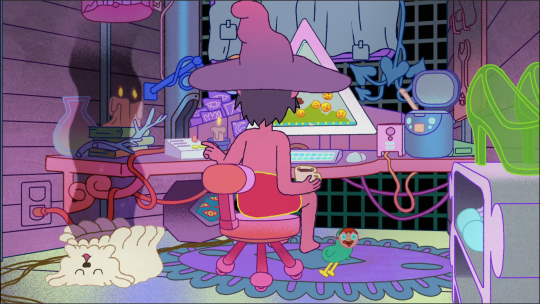
Going to kick off the revamping of this blog with a deeper look into one of the premises of The Midnight Gospel. A long time ago, I gave some thoughts on the trailer for the show in anticipation of its release. I must say that it did not disappoint and I’ve found myself thinking back on the show quite often since finishing it and rewatching a few episodes here and there.
However tempting it is to get into some of the show’s core messages about spirituality, faith, and generally how to live life, I want to start with an analysis of one premise of the show that’s easy to take for granted. I think that it’s a great way to frame how my analyses will be presented moving forward as well.
I’m talking about the Multiverse Simulator. More specifically, I’ll be discussing the relevance of introducing infinite worlds and their interesting inhabitants, but underscoring that they aren’t real in the literal sense of the word.
Overview of The Midnight Gospel

For those unfamiliar with The Midnight Gospel, it’s a show about a space-caster (imagine a video podcast broadcast to all of space) Clancy Gilroy, who interviews different people on life, death, and everything that comes in between. Here’s the catch, though, Clancy’s interviewees are all the product of a simulation. He visits different universes through his Multiverse Simulator, a device that randomly generates worlds and their inhabitants.
Every episode is a different interview, whose content is based on actual interviews by co-creator of the show, Duncan Trussell, for his own podcast. Taking place within the backdrop of a colourful and sometimes absurd world, courtesy of co-creator Pendleton Ward, creator of Adventure Time.
The show goes to some very profound places and at times explores heavy topics. But there are fart jokes at just the right times, and that balance is what makes the show so heartwarming and enjoyable.
With such an episodic premise, The Midnight Gospel may seem very much like a standard interview-type podcast but animated, but this isn’t the case. As the show progresses, we are introduced to more of Clancy’s life outside of his space-casting. His character develops and changes along the way. And that growth can, in large part, be attributed to the conversations he has with the inhabitants of other worlds.
But when circling back to the core of the show, one looming issue emerges. If these interviewees are just the product of some computer algorithms, which, at one point, were programmed by a person, what value do these conversations have? The show does not shy away from reminding us that the Multiverse Simulator is a machine. In fact, the plot of later episodes is driven by technical issues faced by owning a machine that can malfunction. So if none of these interviewees are real, what of their thoughts, words, and actions? Is Clancy, in fact, alone?
Fictional Worlds, Fictional People

The series does begin with Clancy living alone. Aside from his simulations, his pet dog, Charlotte, and his semi-autonomous home A.I., Computer, Clancy doesn’t interact with anyone else. It’s only towards the end of the series that we see other humans and even then, Clancy carries on a transactional relationship with them, calling on them or interacting with them because he needs something from them.
He also goes out of his way to shut out other people– and without spoiling too much of the upcoming analyses– even those close to him. This behavior stands in contrast to how he interacts with the simulations, where he actively listens to and engages with his interviewees.
On some level, he might just be doing what a good interviewer does to mine for content. However, the conversations he has with them directly affect his feelings, thoughts, and actions, granted some more easily than others. Nonetheless, they change his way of living and his worldview.
If we look at the Multiverse Simulator as an allegory for fiction, then the relationship Clancy has with his interviews makes a lot of sense. Fiction, like the code behind the simulated worlds, is created from human hands. An algorithm that learns how to talk like a human, even experience like a human, must be fed human experiences and realities in the first place.
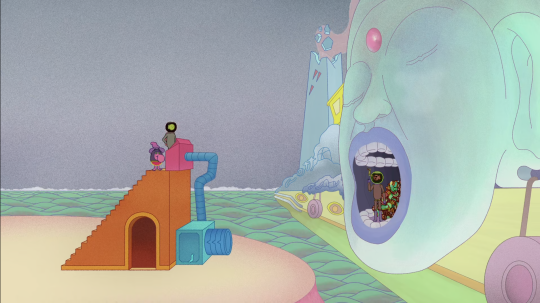
Through fiction, we are exposed to other people’s feelings, thoughts, and experiences, and like any kind of media, we can choose whether or not we want to consume them, engage with them, or internalise them.
However, it might be easier hearing these lived truths coming from a fictional character than from someone we have biases against believing (case in point, how many people dismiss parental truths as paranoia?). In fiction, we’re communicated these truths in a vicarious and visceral way. Show, don’t tell. This makes it all the more impactful.
And what is a Multiverse Simulator but the latest form of cutting-edge entertainment? A new kind of consumable media?
The Multiverse Simulator is an excellent allegory for fiction as well, because sometimes, fiction exaggerates the reality being presented. It blows up and stretches truths in fantastical, terrifying, and sometimes unexpected ways. Nonetheless, we recognise the humanity (or lack thereof) in the characters and in the story.
Furthering the allegory, we see that the multiverses are not separate from one another. There’s a cat ship in one episode that Clancy sets off course and as a result, Clancy is derailed en route to his destination planet in the next episode by colliding with the ship. Similarly, works of fiction inspire each other. Media that creators have consumed influences their work.

And whether or not we create more media, fiction inspires the consumer. At the end of every episode, Clancy edits his space-cast for upload. In this way, all the fiction we consume, whether a book, a show, a movie, or anything else, affects us differently and different points in our lives. The “key takeaway,” “moral of the story,” or whatever you’d like to call it, differs for everyone. We’re editing the most salient point of the media we consume every time we consume them.
But the Multiverse Simulator as an allegory goes even further.
Living in The Matrix

In the everyday grind of lived experienced, it’s all too easy to dismiss the experiences and the very existences of other people. Call them “extras” or “fillers” or “background characters,” we have at one time or another gone through life acting as though only our lived experiences were the capital-R Reality.
Cognitively, we know this is probably not the case. Although philosophers like Descartes, famous for his conclusion cogito ergo sum (I think therefore I exist), have shown that through pure logic, we can doubt the existence of other beings exceptfor us, practically, we live as though our family, friends, and colleagues do exist.
Perhaps the way to put it is that their experiences are not as real as ours. The writer David Foster Wallace puts it really well in “This Is Water.” He says,
“There is no experience you’ve had that you were not at the absolute center of. The world as you experience it is right there in front of you, or behind you, to the left or right of you, on your TV, or your monitor, or whatever. Other people’s thoughts and feelings have to be communicated to you somehow, but your own are so immediate, urgent, real — you get the idea.”
Developmental psychologists also point out that young children believe the world revolves around them, because they still are unable to put themselves in the place of others, and so their own existence becomes the primary reality.
In other words, you have to make an active choice to consider the people around you as real. It’s a mental effort to remember that the people you’re talking to are just as real and living lives just as concrete and tangible as yours. Otherwise, it’s easy to go back to a comfortable place in which your own experience supersedes anyone else’s; therefore, it is your comfort that is the priority and everyone else is just in the way of that.
This thinking hearkens back to the concept of the Matrix. What if everything around were just fabricated and you, specifically you the individual, were the only “real” thing? Or maybe you and a few friends and loved ones were the only real things, what then? There have been many arguments going around about how if nothing matters, then just live in a way that pleases you, other people be damned. Or that only those in your closest circles really matter anyway and only look out for your own.

The Midnight Gospel presents us another option. Whether or not we can be certain everyone around us is going through something the way we are, whether or not we can say discount a negative encounter as the other person just having a bad day, whether or not we want to hear what the world throws at us, we make the choice to listen. We make the choice to take them as real. Just as Clancy does in his interviews.
Because Clancy does encounter people who regularly challenge his worldview. Even if they’re made up. Even if they’re created by a computer. Clancy chooses to open his mind to what the characters are saying and treats them with respect.
And this is not to moralise or to speak of my own morality. This is presenting a way of living as espoused in the show and having it happen to intersect a lot with my worldview.

There are times when you definitely feel like just turning off your brain and enjoying some fiction, or just going through life on autopilot because there are too many things to worry about as it is. But for me, analysing and reading into the fiction I consume has always helped me garner a deeper appreciation for the deliberate choices and the story that the creator is trying to tell.
Giving faces to the stories of the faceless “everybody else” I’m all too eager to shut out has greatly improved the quality of my life, and hopefully, the lives of the people around me, because it’s made me just a little more patient, just a little kinder, just a little more understanding. And at the end of the series, Clancy is all those things and just a little more open to what comes next.
_______________________________________________________________________
This is the first of a series of The Midnight Gospel Analyses I have planned. I’ll be linking to the other posts down here, so stay tuned.
Simone de Beauvoir’s garden of meaning
What is existentialism? For Simone de Beauvoir (b. 1908) the discipline is a response to the human need to find a ‘place in a world turned upside down’. It cannot be explained succinctly. Still, let’s have a go.
Pyrrhus and Cineas
In her 1944 essay Pyrrhus and Cineas Beauvoir looks to explain humanity’s quest to find meaning by way of analogy.
Pyrrhus has a plan:
‘We are going to subjugate Greece first,’ says Pyrrhus.
‘And after that?’ asked Cineas.
We will vanquish Africa.’
‘After Africa?’
‘We will go onto Asia … ’
‘And after that?’
‘We will go on as far as India.’
‘After India?’
‘Ah! I will rest.’
‘Why not rest right away?’
According to Beauvoir, Cineas’ question haunts our projects. For why do anything? What’s the point? We’re only going to end up where we started.
However, it’s only Pyrrhus who leads an authentic life. Whereas many people fail even to question their lives, he directs himself towards goals, having the imagination to forge something for himself from the world.
Pyrrhus doesn’t leave to return home, where he started: he leaves to conquer; then to conquer again … Each time he decides a new end. Each time he ‘transcends’ his situation.
‘The paradox of the human condition is that every end can be surpassed, and yet, the project defines the end as an end.’
The garden
The values we draw from our projects are never intrinsic, ready-made, or universal. To believe they are is to possess bad faith.
‘By identifying himself with his sex, his country, his class, with the whole of humanity [or God], a man can increase his garden, but he increases it only in words … [T]he fly on the stagecoach claims he is the one who led the carriage to the top of the hill.’
We give the world meaning through our engagement with it, an act which is accomplished with freedom and subjectivity. We throw ourselves towards ends with uncertainty: the price of leaving the world of ennui and inertia behind us. But, by choosing the locations and the limits of our projects, we snatch ‘the world from the darkness of absurdity’.
This garden must belong to me; I cultivate it. It even transcends me when I die.
‘I am enclosed within it until death because that garden becomes mine from the moment I cultivate it.’
It matters that our values are not given to us. My garden cannot be merged with the sterile void of the Universe, a passive equilibrium.
Being is not fixed to things: being is fixed to itself in a mode of transcendence. Like Pyrrhus’ journey, projects don’t end: ends are surpassed by other ends. Conquer or rest: it doesn’t matter which you choose. Just choose!
⁂
‘Is that my business? What does India matter? And what does Epirus matter? Why call this soil, this woman, these children mine? I brought these children into the world; they are here. The woman is next to me; the soil is under my feet. No tie exists between them and me. Mr Camus’s Stranger thinks like this; he feels foreign to the whole world, which is completely foreign to him … The inert existence of things is separation and solitude.’
Post link


![soracities:Maurice Merleau-Ponty, The World of Perception (trans. Oliver Davis) [transcript below] K soracities:Maurice Merleau-Ponty, The World of Perception (trans. Oliver Davis) [transcript below] K](https://64.media.tumblr.com/093ab6f8e000792920ccf08973d28c31/2f4b2bb43a9eb3e8-3e/s500x750/5ed2465ca70ad9a86776384923dde7b614e7b435.png)
